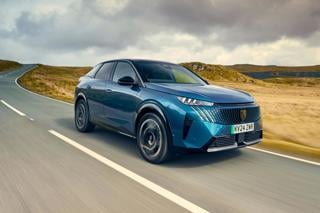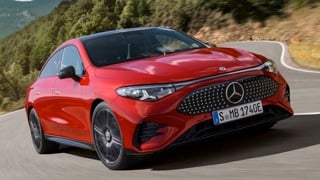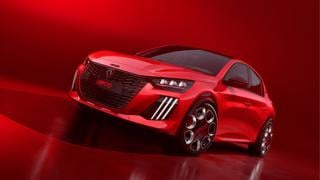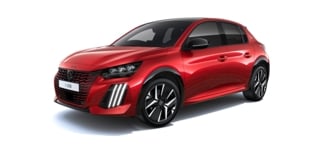Nevertheless, its rental market share of around 8% still sits above its total fleet share of 5.8% and true fleet of 4.5%.
The plan is to level off the proportions across all key market segments in fleet as well as retail.
And Robson stresses: “Our fleet is the purest it’s been in the four-and-a-half years I’ve been doing this job in terms of reflecting the market.
"And, in time, there’s no reason why we can’t be a 7-7.5% fleet share manufacturer.”
The rental-withdrawal strategy is achieving its twin objectives of raising profitability and bolstering residual values.
The yardstick for success is a basket of sub-premium, aspirational vehicles such as Volkswagens.
“We were 11 percentage points behind; now we are four behind,” Robson says.
“We have made significant progress.”
In total, Peugeot’s fleet registrations are up almost 8% year-to-date, which reflects growing acceptance of its cars compared to a few years ago.
Robson would like this to “happen quicker” but recognises that perceptions don’t change overnight.
“The biggest challenge is to challenge preconceptions on quality and reliability,” he says.
“It’s not about the fleet manager or getting on the fleet list; it’s the user-chooser not considering the car.”
The 208 is already helping to tackling these deeply held opinions; its 16,000 orders since launch, including 3,500 pre-launch, is a record for Peugeot.
The carmaker entered the final quarter of 2012 with 62% more orders than this time last year with the old 207. Momentum is under way.
However, Peugeot is competing in a stagnant market and Robson does not expect any substantial rise in fleet car numbers, bar a return to the market by small fleets which are delaying their purchase decisions.
This could account for 10-15% of the total fleet car market and a little more in vans which offers the real litmus test in this sector.
Peugeot Contract Hire, whose typical customer operates just 3.4 vehicles, has seen its van sales drop 20% year-on-year, compared to Peugeot’s total van sales which are up 10%.
The increase is down to larger fleet deals and growing acceptance of its vans, particularly the Partner which is up 57% year-on-year. It has ridden the trend for companies to downsize their vans.
The Boxer is also up 17%, buoyed by its suitability in the conversions sector and its carrying capacity.
Both also benefit from an optional four-year warranty available to fleets; with many customers now operating vans over four years, take-up is high.
Robson expects the SME market for cars and vans to pick up next year which will help Peugeot to an 8-10% increase in sales in the fleet sector.
But he also backs the HMRC figures which show a general decline in company cars since 2004.
He believes they have now reached their natural level, but points to salary sacrifice as an opportunity to grow sales.
“If there is going to be any growth in company cars, it will be from salary sacrifice.
"Companies are more open to it; we are seeing more requests for terms. Our products are perfect for salary sacrifice with their low CO2, but it needs disciplines over eligibility.
“We don’t give terms for leasing companies to use; they are for end users to share with their finance partners – that’s who our agreements are with.”
While salary sacrifice is the preserve of the HR department, Robson has noted a recent trend for the general fleet to move away from HR and into finance.
It started with the 2009 recession, which reversed a long-term trend in the other direction.
“The finance department is increasingly getting hold of the fleet,” he says.
“We are seeing much more restrictions on policy and we are having more success as a result of this, especially with fleets that have both cars and vans.
“Generally we move from van into car not the other way round and the change from HR to finance is helping to bring these deals together.”





















Login to comment
Comments
No comments have been made yet.